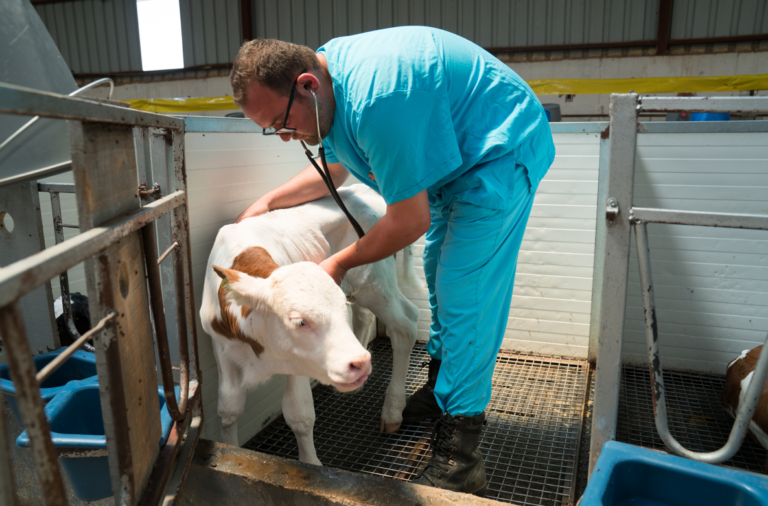Burnout can affect any veterinarian at some point in their professional life, especially small animal veterinarians. The physical, mental and emotional exhaustion linked to the profession makes us more vulnerable to burnout, reaching the point where we can no longer cope and seriously think about leaving the practice or changing careers. Can we expect a better quality of life if we are our own bosses? Or maybe it’s better to work for someone else?
Veterinary students are not spared from burnout even before they start practising. In fact, many of them suffer burnout in the final years of their studies due to academic demands, doubts about their professional direction after graduation, the pressure they put on themselves to get the best grades and, sometimes, that of their own family members who want to see their children’s careers take off as soon as possible.
The vast majority of graduates are inclined towards small animal clinics, as VetSurvey has already shown in 2018-2019. And then the questions begin popping up: Should I set up my own practice in a crowded market that’s got a tendency to concentrate on large corporations, or should I forget about it and get a job in one of these large hospitals? Which option would give me a better quality of life and a more promising professional future?
Pros and cons of owning a veterinary clinic
Owning your own practice, alone or in partnership with another veterinarian has its advantages. Many graduates, after gaining experience in a large centre, decide to take this important step in their lives.
According to some of the experiences that they shared with us in interviews published in VetVoices, the professionals we spoke to chose that option motivated by the possibility of managing their professional schedule and, therefore, their free time with greater flexibility. Contrary to what one might think, it’s been shown that Burnout due to overwork affects owners less than salaried workers, especially in women who want to start their own family.
Being your own boss gives you the opportunity to organise your life and work on your own terms.
Another important reason is the greater freedom to do your job and deal with the client without restrictions or constraints imposed by others. And let’s not forget another very important factor when you are an owner: the possibility of growing and strengthening the clinic, which means higher income.
So far, so rosy. But as with everything in life, there is also the downside, which can cause stress and exhaustion that are difficult to manage.
The B side of owning a veterinary clinic can be summarised in these five points:
- Difficulty in breaking into a crowded market. This can lead to financial difficulties and stress due to the constant struggle to keep the clinic afloat.
- Possible difficulties with your business partner due to differences of opinion.
- Vulnerability. Your successes and your mistakes will be your responsibility alone and the clinic’s reputation may be affected. You will have to manage and take responsibility for negative opinions in real life and on social media.
- Stress from having to juggle all the administration, accounting and human resources work in addition to medicine. Small practices can get by with the help of an external accountant and manager…until the business grows. It’s important to know when it’s time to hire a manager familiar with veterinary medicine before you end up stressed and exhausted. Cornell University (Ithaca, NY) has started to implement business studies in the final years of veterinary school. Knowledge of accounting, billing, cash flow, pricing of services and human resources will help alleviate the stress of having to deal with something you’re not prepared for.
- Stress and frustration at not being able to advance professionally due to lack of resources. To avoid this, it’s recommended to have a referral centre with the diagnostic equipment that a smaller clinic cannot afford.

Pros and cons of working for a Corporate Hospital
Working as a salaried employee for another vet or a large corporation also has its advantages and disadvantages.
You don’t own the business, so you can forget about all the management and financial problems you would otherwise have. In addition, you feel protected under a corporate umbrella that can, in most cases, promote your continuing education, specialisation or research.
If you work for a large corporation, you will have the possibility of sharing experience and knowledge with other associated centres. You will be able to practice quality medicine thanks to the wide range of technical resources and you will have a stable salary, in line with your professional knowledge.
However, working for a large corporation also has its drawbacks, and these can lead to stress and burnout for some people.
You will be forced to always work according to the standards set by the company, both in the quality of your work and in the way you treat customers. In large corporations, financial goals must be met, leaving little room for improvisation. This can lead to conflict with some people’s ideals.
Enjoying your work is about feeling a sense of belonging and enjoying your choice, whether it’s your own small clinic or practice or whether you’re part of a large organisation.
And you’ll have less flexibility in your working hours. It will be more difficult for the company to adapt to your family situation, for example, if you decide to become a parent or have dependents, which can also lead to burnout.
The choice between starting your own business or working for someone else will largely depend on your own personality, your goals as a professional and your personal circumstances. To prevent burnout, the most important thing is to be satisfied with your work and to look for ways to get away from it and relax.
No solution is perfect, but as you can see in the different interviews we have been publishing in VetVoices, veterinarians have put imagination into adapting to life’s challenges at all times. And there is no doubt that you can do it too.
References:
VetSurvey. Survey of the veterinary profession in Europe. Federation of Veterinarians of Europe.
Veterinarians weigh the choice to stay small or join the giants. Cornell University. College of Veterinary Medicine. October 15, 2018









